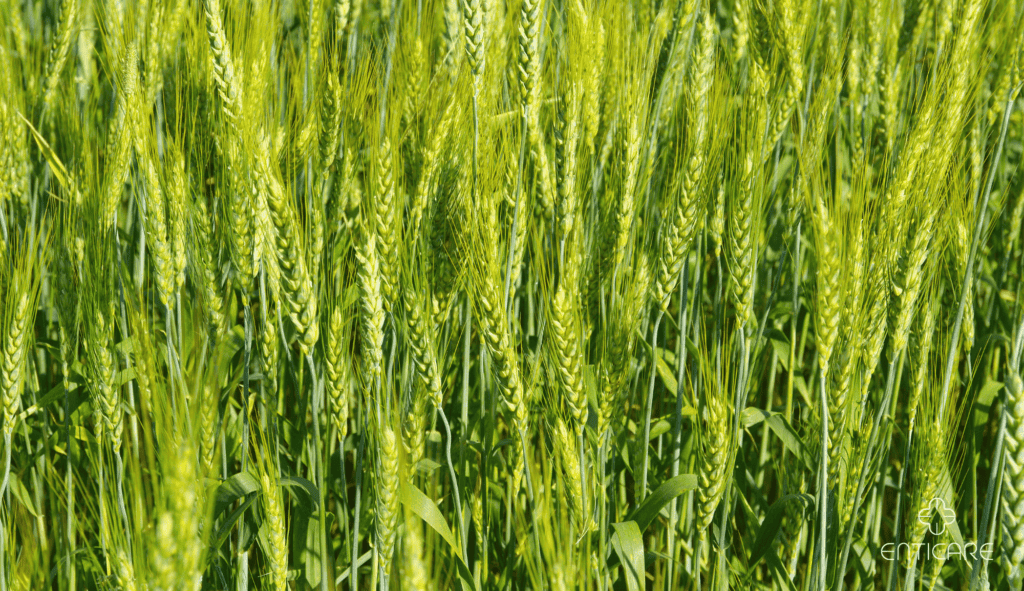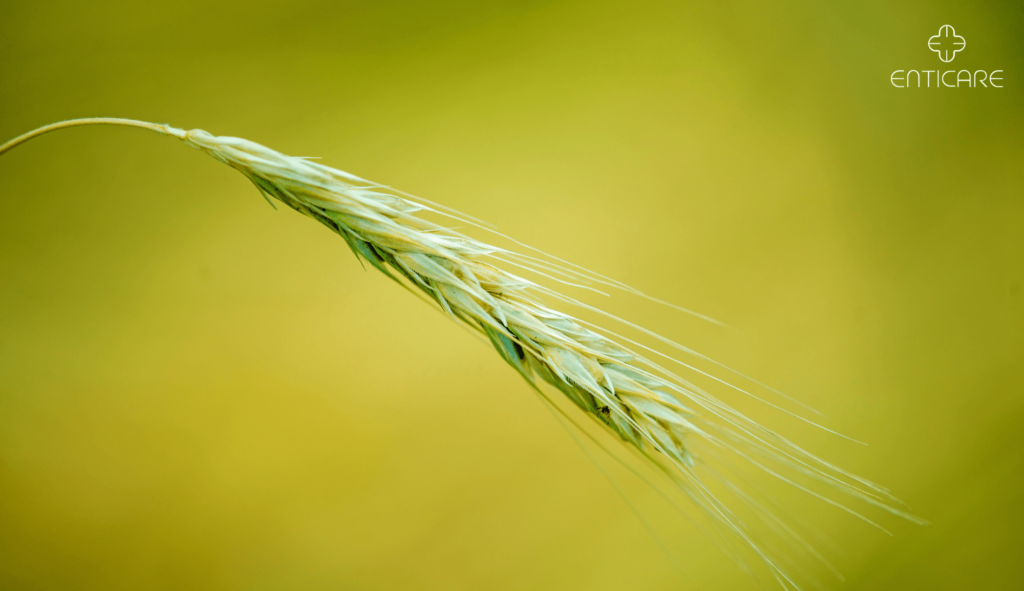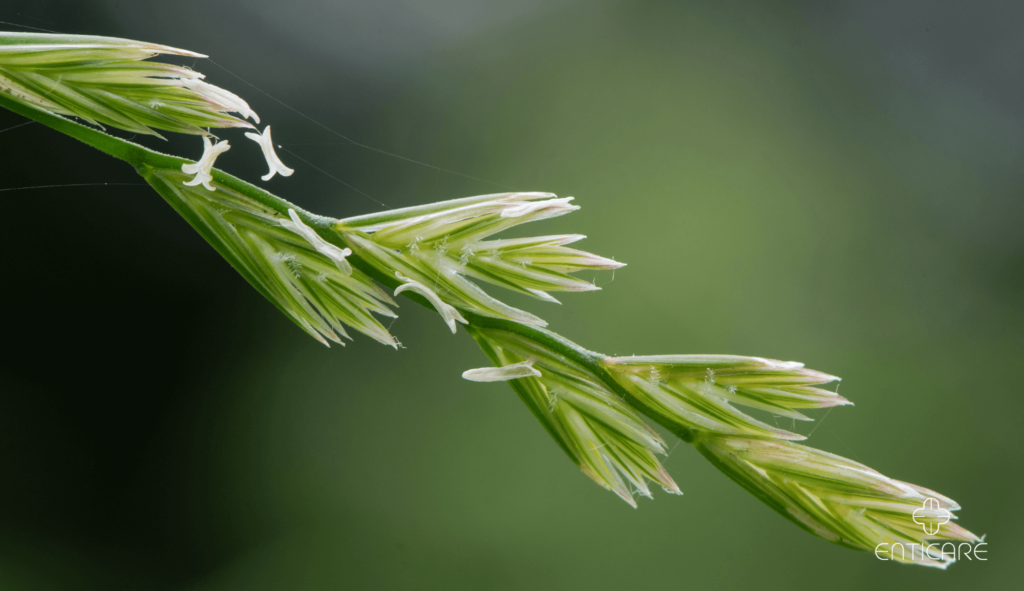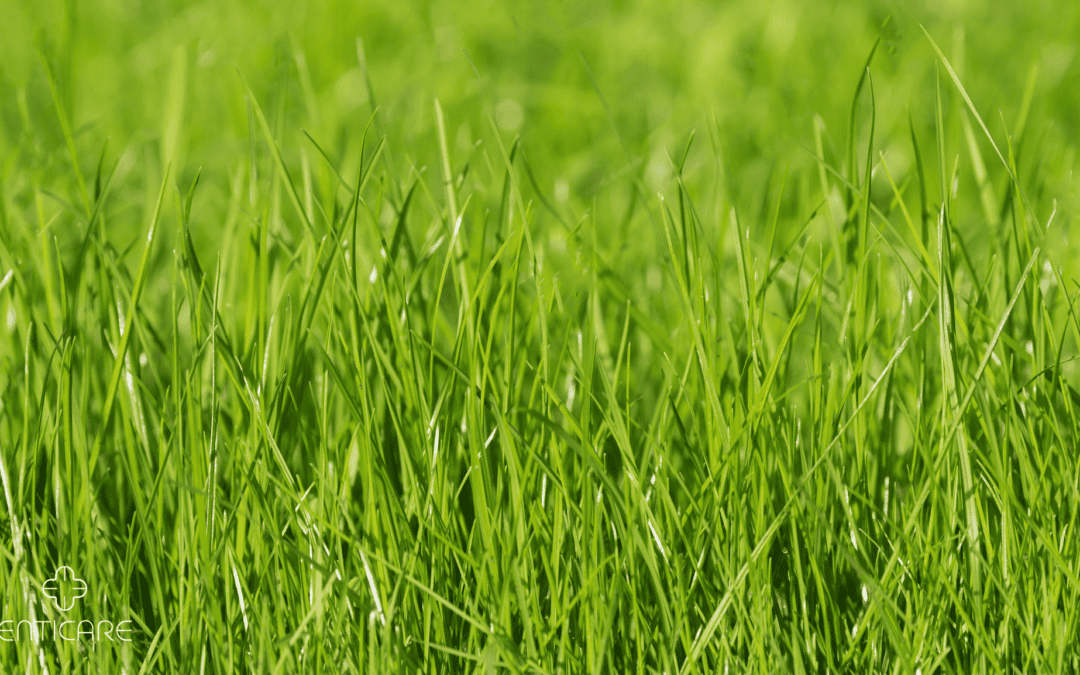Spring has sprung! But for some, the blooming season brings itchy eyes, a runny nose, and a constant battle with allergy symptoms. If your allergies worsen around grassy areas, you might be suffering from perennial ryegrass allergy. This blog delves into this common allergy, providing you with the knowledge to identify the culprit, manage your symptoms, and reclaim your enjoyment of the beautiful spring weather.

Perennial Ryegrass: A Lawnmower’s Friend, Allergy Sufferer’s Foe
Perennial ryegrass (Lolium perenne) is a cool-season grass widely used in lawns across temperate climates. Known for its rich green color and tolerance to cold weather, it’s a popular choice for homeowners. However, the pollen it produces during spring and early summer can trigger allergies in some people.
Peak Pollen Season: When to Be Wary
Perennial ryegrass releases pollen from April to June, with peak season typically occurring in May. If you experience allergy symptoms during this time, especially in areas with well-maintained lawns, it’s wise to consider perennial ryegrass as a potential culprit.
Recognizing the Enemy: Signs and Symptoms of Perennial Ryegrass Allergy
If you suspect a perennial ryegrass allergy, watch out for these common symptoms:
- Itchy, watery eyes
- Runny or stuffy nose
- Frequent sneezing
- Coughing
- Scratchy throat
In severe cases, wheezing or difficulty breathing (especially if you have asthma)
These symptoms usually appear within minutes of exposure to perennial ryegrass pollen and can linger for several hours.

The Culprit Behind the Chaos: Causes of Perennial Ryegrass Allergy
Similar to other allergies, a perennial ryegrass allergy arises from an overreaction of your immune system. When you inhale perennial ryegrass pollen, your body mistakenly identifies it as a threat, triggering the release of histamines. Histamines are chemicals that cause allergy symptoms like inflammation, itching, and mucus production.

Keeping Allergy Symptoms at Bay: Prevention Tips
While complete avoidance might be challenging, here are some ways to minimize your exposure to perennial ryegrass pollen:
Stay informed: Check pollen forecasts and plan outdoor activities for low pollen count days (usually mornings after a rain shower).
Know your surroundings: If possible, avoid spending extended periods in areas with large expanses of well-maintained lawns.
Delegate yard work: If you have perennial ryegrass in your lawn, delegate mowing and weed control to minimize your exposure.
Keep windows closed: Especially during peak pollen season, keep your windows shut and rely on air conditioning with HEPA filters to clean indoor air.
Change clothes and shower: After spending time outdoors, change your clothes and wash your hair to remove lingering pollen.
Maintain a clean environment: Regularly vacuum your home and dust surfaces to remove trapped pollen.
Who’s More Susceptible? Risk Factors for Perennial Ryegrass Allergy
Certain factors can increase your risk of developing a perennial ryegrass allergy:
Family history of allergies: If allergies are common in your family, you’re more likely to develop allergies yourself.
Hay fever: People with hay fever (allergic rhinitis) are more prone to developing allergies to other airborne allergens, including perennial ryegrass pollen.
Asthma: If you have asthma, exposure to perennial ryegrass pollen can worsen your symptoms.
Battling the Sniffles: Treatment Options for Perennial Ryegrass Allergy
Several treatment options can help manage your perennial ryegrass allergy:
Over-the-counter medications: Antihistamines like loratadine (Claritin) or cetirizine (Zyrtec) can help alleviate allergy symptoms like sneezing, runny nose, and itchy eyes.
Nasal corticosteroids: Steroid nasal sprays like fluticasone (Flonase) can reduce inflammation in the nasal passages, providing relief from congestion and a runny nose.
Allergy shots (immunotherapy): This long-term treatment involves getting regular injections of small amounts of perennial ryegrass pollen over time. It helps desensitize your immune system to the pollen, gradually reducing your allergy symptoms.
Consult your doctor to determine the most suitable treatment plan for your specific needs. They can recommend the appropriate medication or suggest allergy testing to confirm the source of your allergies. Entrust Enticare to assist you in finding the perfect treatment course for your well-being. Call 480-214-9000 to start your health transformation.

